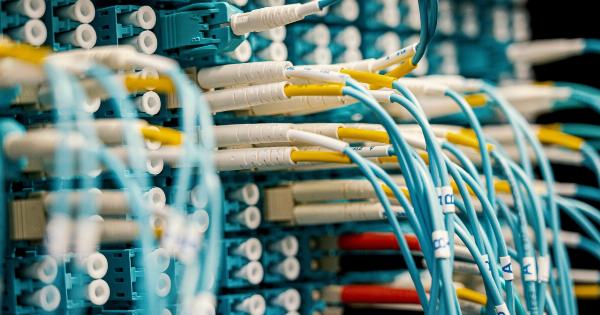When it comes to chronic health conditions, both hypertension (high blood pressure) and migraines are prevalent and often debilitating.
These conditions can significantly impact an individual’s quality of life and require careful management to minimize their effects. Interestingly, scientific research has revealed a possible connection between the two conditions.
In this article, we will explore the intriguing link between hypertension and migraines, examining the potential causes, symptoms, and treatment options for individuals experiencing both conditions.
Understanding Hypertension
Hypertension, commonly referred to as high blood pressure, is a chronic medical condition characterized by consistently elevated blood pressure levels.
This condition occurs when the force of blood against the walls of the arteries is too high, putting extra strain on the heart and cardiovascular system.
There are two primary types of hypertension:.
1. Primary Hypertension
Primary hypertension, also known as essential hypertension, is the most common type, accounting for approximately 90-95% of cases.
This form of hypertension develops gradually over time and is influenced by various factors such as genetics, age, race, and lifestyle choices.
2. Secondary Hypertension
Secondary hypertension, on the other hand, occurs as a result of an underlying medical condition. This could be a kidney disorder, hormonal imbalance, or the use of certain medications.
Secondary hypertension accounts for around 5-10% of cases and typically appears suddenly.
Understanding Migraines
Migraines, often described as intense headaches, are a neurological disorder that manifests as recurring episodes of moderate to severe head pain.
While the exact cause of migraines is still not fully understood, several factors can trigger these episodes, including hormonal changes, certain foods, stress, and environmental stimuli.
The symptoms of migraines may vary from person to person, but they commonly include:.
1. Throbbing or pulsating head pain
2. Sensitivity to light and sound
3. Nausea and vomiting
4. Visual disturbances
5. Dizziness or lightheadedness
Migraines can be highly debilitating, often leading to missed workdays and a decreased ability to carry out daily tasks. Individuals who experience migraines frequently require specific treatment measures tailored to their condition.
The Potential Connection Between Hypertension and Migraines
Scientific studies suggest a possible association between hypertension and migraines, indicating that individuals with hypertension may be more prone to experiencing migraines and vice versa.
Several theories have been proposed to explain this connection.
1. Shared Genetic Factors
Genetics is known to play a significant role in both hypertension and migraines. Certain genes or gene variants may predispose individuals to develop these conditions.
Therefore, it is feasible that a subset of individuals may inherit a genetic predisposition for both hypertension and migraines.
2. Neurovascular Link
The neurovascular theory suggests that abnormalities in the way blood vessels in the brain respond to various stimuli could contribute to the development of both hypertension and migraines.
Dysregulation of cerebral blood flow and vascular tone may be common underlying factors in both conditions.
3. Hormonal Influence
Hormones have been implicated in the development of both hypertension and migraines. Fluctuations in hormone levels, particularly estrogen, have been associated with an increased susceptibility to migraines in some individuals.
Hormonal changes may also affect blood pressure regulation, potentially leading to hypertension.
Managing Hypertension and Migraines Simultaneously
When an individual experiences both hypertension and migraines, managing both conditions simultaneously becomes crucial to improving their overall well-being.
Treatment options will typically involve a combination of lifestyle changes, medication, and other targeted approaches.
Lifestyle Changes
Adopting a healthy lifestyle can significantly impact both hypertension and migraines. Here are some essential lifestyle changes that may help:.
1. Regular Exercise
Engaging in moderate-intensity aerobic exercise for at least 150 minutes per week can help lower blood pressure and reduce the frequency and intensity of migraines. Activities such as brisk walking, swimming, or cycling can be excellent options.
2. Balanced Diet
Eating a nutritious, balanced diet is crucial for managing both hypertension and migraines. Focus on consuming plenty of fruits, vegetables, whole grains, and lean proteins.
Limit your intake of sodium, processed foods, and trigger foods that may provoke migraines.
3. Stress Management
Stress is a common trigger for migraines and can also contribute to elevated blood pressure.
Incorporate stress management techniques into your daily routine, such as deep breathing exercises, meditation, yoga, or engaging in hobbies that help you relax.
Medication
Depending on the severity and frequency of symptoms, healthcare providers may prescribe various medications to manage both hypertension and migraines. These may include:.
1. Antihypertensive Medications
There are several classes of antihypertensive medications available that can effectively lower blood pressure. These may include angiotensin-converting enzyme (ACE) inhibitors, beta-blockers, diuretics, or calcium channel blockers.
The choice of medication will depend on individual factors and any underlying medical conditions.
2. Triptans
Triptans are a class of medications specifically designed to treat migraines. They work by constricting blood vessels and reducing inflammation in the brain, relieving migraine symptoms.
Triptans are available in different formulations, such as oral tablets, nasal sprays, and injections.
Other Approaches
In addition to lifestyle changes and medication, there are other approaches that individuals experiencing hypertension and migraines may find beneficial. These include:.
1. Biofeedback
Using biofeedback techniques, individuals can learn to control their bodily responses to stress and pain. This approach has shown promise in helping manage migraines and alleviate symptoms.
2. Acupuncture
Acupuncture, an ancient Chinese therapy, involves the insertion of thin needles into specific points on the body. Some individuals find that acupuncture helps reduce the frequency and severity of migraines.
Conclusion
The link between hypertension and migraines is a complex and fascinating area of study.
While the exact connection is still not fully understood, evidence suggests that shared genetic factors, neurovascular dysfunction, and hormonal influence may contribute to the development of both conditions. If you experience both hypertension and migraines, it is important to work closely with your healthcare provider to develop a comprehensive treatment plan that addresses both conditions simultaneously.
By incorporating lifestyle changes, medication, and other techniques, you can effectively manage both hypertension and migraines, improving your overall well-being and quality of life.






























